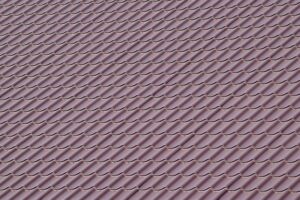 A roof represents one of the most noticeable parts of any home, and fulfills an important role in the good health and general value of any property. Therefore, keeping it in a good state for as long as possible is something that all homeowners want. And this obviously starts with the exact type of material you decide on.
A roof represents one of the most noticeable parts of any home, and fulfills an important role in the good health and general value of any property. Therefore, keeping it in a good state for as long as possible is something that all homeowners want. And this obviously starts with the exact type of material you decide on.
In order to make sure you choose the best roofing material for your home, you need to carefully consider a few important factors. Thus, your choice will depend on your budget, climate, architectural style, and personal preferences. If you want to make an informed decision, there are some good steps you can follow.
Priorities
For one thing, you need to clearly determine your priorities and what you want to achieve with your new roof. At this point, you may want to take into account features such as durability, energy efficiency, aesthetics, and also long-term maintenance requirements.
Research materials & durability
At the same time, it is very important to do your research into a wide variety of roofing materials, before you settle for the best materials available on the market. Some common options include asphalt shingles, metal, wood shakes, clay tiles, concrete tiles, slate, and synthetic roofing materials. Each material has its unique characteristics, as well as advantages and disadvantages.
Some roofing materials have a longer lifespan than others. As a consequence, it is very important to always consider the durability and expected longevity of each material, taking into account factors such as resistance to weathering, impact resistance, and maintenance requirements. Long-lasting materials may have a higher upfront cost but can definitely save you money in the long run.
Climate
Your local climate is yet another essential factor in determining the best roofing material. For example, asphalt shingles are popular in areas with moderate climates, while metal roofing performs well in areas prone to high winds or severe weather. Choose a material that can withstand the specific weather conditions in your region, and talk with reroofing contractors to see what roofing products hold up the best.
Energy Efficiency
It should also be noted that energy-efficient roofing materials can help reduce your heating and cooling costs. So you should look for materials with high insulation properties or that reflect sunlight, such as cool roofs. You need to carefully consider the energy efficiency ratings and certifications associated with each material.
Style
Moreover, the roofing material should complement the architectural style of your home. Different materials have distinct aesthetics, so you should choose one that enhances the overall look and curb appeal of your property. And checking with your local authorities or consulting a roofing professional can help ensure that the material you choose complies with local building codes and regulations.
Maintenance
Because some roofing materials require more maintenance than others, you should think about the time, effort, and cost involved in maintaining the chosen material. For example, wood shakes may require regular inspections, treatments, and repairs, while asphalt shingles are relatively low maintenance.
Last but not least, you should consult with a professional roofing contractor or an architect to get their expert opinion on the best roofing material for your specific needs. They can provide valuable insights based on their experience and knowledge.


